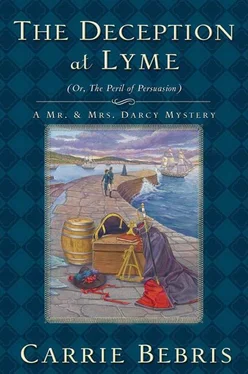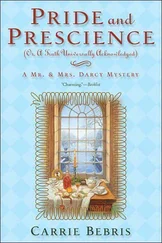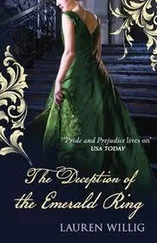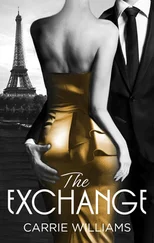* * *
The West Indies are beautiful, but hot. We have been here now for three months, performing various assignments to protect Britain’s Caribbean interests. It is important work, and we have seen a few battles, but none have yielded much in the way of prize money, and the men grow restless as a result. They long to be closer to the main action of the war. Their wish will soon be granted, for we leave Kingston on the morrow.
We are under orders to escort two merchant ships back to England. They carry cargoes comprising mainly Jamaican rum and sugar (muscovado—brown sugar that will be further refined in Bristol or London; I have learned more about the sugar trade in three months here than I ever expected—or wanted—to know). The owner of one of the ships—the Montego —has won over our crew with a gift of numerous casks of rum for the men’s consumption during the voyage home. He is a wise man—doubtless, they will now defend the Montego with extra zeal. He has also given each officer enough rum to last the voyage and then some, as well as casks of finished white sugar—illegal to import for sale in England, but allowed on board as part of our personal possessions. Rumors circulate that the captain’s private stores hold more Jamaican rum and sugar than wine and beef.…
* * *
We are halfway home, and I look forward to our return to England’s fairer climate with each passing day. The sea has been calm—too calm—and we bake in the heat as our sails hang slack. The men are bored and frustrated. I believe the captain is, as well. He has formed the habit of inviting three passengers of the Montego to dine with him regularly. One gentleman, a Mr. Smith, is the owner of a sugar plantation between Kingston and Spanish Town; it is his sugar and rum the Montego carries, and which the crew and officers of the Magna Carta received in gift. Our crew does not grumble about having civilians aboard, or the trouble of transporting them from one ship to another for the sake of dinner, as the quality of Mr. Smith’s rum—which they enjoy on Sundays in lieu of their standard issue—is superior to Pussar’s. The best that can be said of the other two fellows is that they are unobjectionable, though one of them seems at pains to impress upon us that he is a future baronet.…
* * *
A most extraordinary mystery presented itself today. Upon my return to the wardroom after watch duty, our cook begged a private word with me. We moved to my cabin and drew closed the canvas. He then recounted in a low voice how, while he was retrieving sugar from a partially used cask, the scoop struck something hard. He dug out the object—an incredible discovery—a small gold figurine fashioned in the form of some sort of fantastic creature. Additional excavation produced a second figurine of similar design.
The poor fellow was in some terror of this find, though it is difficult to name the greater source of his fright—superstitious dread of the wrath of whatever heathen god the idols represent, or fear of being accused of theft aboard ship and sentenced to flogging. He had been threatened with such punishment some days previous by a midshipman whom he had surprised in the stores taking inventory for St. Clair. I assured him of my faith in his innocence, took the idols into my possession, and told him I would handle the matter.
Where did the gold figures come from, and how did they find their way into our sugar cask? Did one of Smith’s slaves plant them for some superstitious purpose before the cask left the estate? Did a member of our own crew secrete them in there? Perhaps they are stolen, and the thief needed to hide them hastily. How else would such valuable objects come to be in such an odd, unsecure location?
Someone comes—
* * *
The “someone” was St. Clair, and I confided to him the discovery. He appeared surprised—yet there seemed something disingenuous in his manner. He obliquely deflected my speculation as to the idols’ provenance, and discouraged me from bringing the matter to the captain’s attention. “He is entertaining Mr. Smith and the others at present,” said he.
I asked whether the cask in question appeared on the inventory, and he replied that all items on the ship had been entered in the manifest before we set sail. I clarified that I meant the inventory he had ordered Mr. Musgrove to complete last week. “Hart told me of it.”
“Did he?” There was a transient wariness in his expression, almost immediately eclipsed by something harder. “Do not concern yourself about the inventory.”
He was all brusque authority; there was none of the warmth I had come to know in months of service with him. He held out his hand. “Give that to me; I will attend to this myself. Meanwhile, say nothing to anybody else about it, and instruct Hart likewise.” He was in that moment entirely the First Lieutenant, and I, the Fourth. There was no question but that I must follow orders without argument.
I surrendered the idol I had shewn him, but they remain fixed in my thoughts. My conversation with St. Clair, far from relieving my suspicions, has only heightened them.
At present, however, we have more pressing concerns. I hear the drum—we are beat to quarters—my cabin must be cleared for the gun crew. Two warships have been spotted, bearing French colors.
* * *
Darcy closed the diary. There were no further entries; the last had been dated the day of Gerard’s death.
After scanning the first pages the night they had discovered the volume, Darcy had deliberated for some time before reopening it. He wanted to know more about his cousin’s life, to hear the tales he might have told in person had he ever had the opportunity. With Gerard’s voice silenced by a lead ball, his writings offered the only means by which he could yet speak. To read his personal diary, however, seemed to violate the privacy of a man who had already lost all else.
It had been Elizabeth, observing Darcy repeatedly taking up the journal only to set it down again unopened, who had ultimately persuaded him. “By reading the record that Lieutenant Fitzwilliam left behind, you do not disrespect your cousin. If anything, reading his words honors his memory, for doing so enables you to appreciate more fully the value of his life.”
“Would you ever want someone else reading your diary?”
“Nobody would want to read my diary.”
“Why do you say so?”
“It would be an extraordinarily brief diversion—I never remember to write in it.”
Gerard, apparently, had not suffered Elizabeth’s lack of discipline. He had filled nearly all the pages of the bound volume with close-written lines, so many that reading through them had occupied a considerable portion of the following two days, when intermittent rain had restricted their enjoyment of Lyme’s outdoor pleasures. Darcy had read slowly, savoring Gerard’s words and descriptions, hearing his cousin’s voice once more and seeing the confident young sea officer Lieutenant Fitzwilliam had become as he related his experiences aboard the Magna Carta and its tour of the West Indies.
The abrupt end and its references to the impending battle foreshadowed Gerard’s death more dramatically than could a novel. While Darcy knew the hero’s fate, he wished it could be rewritten. Yet it was a secondary character who most occupied Darcy’s thoughts when he finally closed the diary.
On the sofa, Elizabeth added stitches to an infant blanket she was embroidering for Lady Elliot’s son. Though Sir Walter had likely commissioned a fleet of seamstresses to outfit the Elliot heir with the most au courant infant fashions and all the linens one small creature could require, she had wanted the motherless child to own something sewn with more than mere thread. Georgiana was helping her create the gift, though at present she had already retired to her chamber for the night.
Читать дальше












